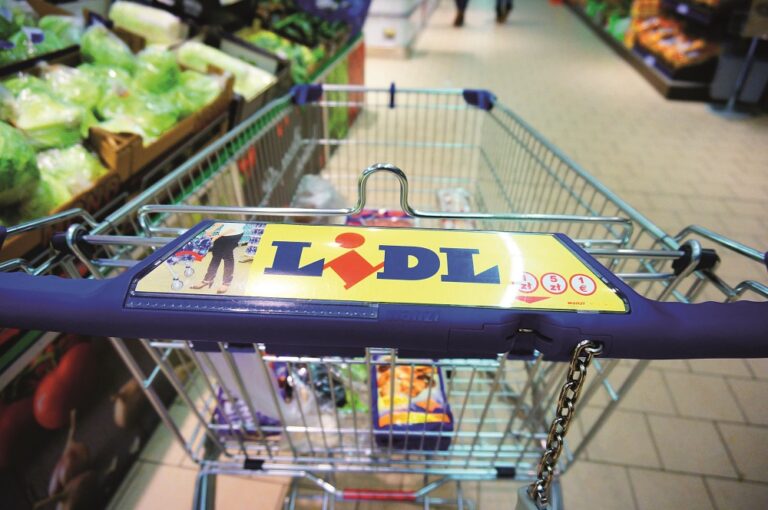Take-home sales at the grocers rose by 4.3% over the four weeks to 26 January compared with one year ago, according to the latest data from Kantar. And January spelled relief for shoppers as grocery price inflation slowed to 3.3% over the four weeks.
With household budgets typically stretched at this time of year, retailers played their part in easing the pressure on purse strings. Fraser McKevitt, head of retail and consumer insight at Kantar, said: “Supermarkets were dishing out the discounts this New Year, and consumers responded. Spending on promotions rose year-on-year by £274 million, accounting for 27.2% of sales – the highest level in January since 2021.”
Lidl’s sales rose 7.4% over the 12 weeks to 26 January, making it three continual years of growth for the discounter, whose share hit 7.2%. Aldi accelerated for the third consecutive month with sales up 4.2% and its market share increasing to 10.2%.
Ocado was the fastest-growing grocer for the ninth consecutive month. Spending at the online retailer grew by 11.3% meaning it now holds 1.9% of the market. Joint owner of Ocado Retail, M&S has also seen a strong 12 week period of growth with grocery sales increasing by 10.5% in its brick-and-mortar stores.
Britain’s largest grocer Tesco gained the most share, its 28.5% hold of the market is 0.7% higher than this time last year, and it also saw its fastest rise in sales since April 2024 at 5.6%. Sainsbury’s outpaced the market at 4.2% sales growth, increasing its share from 15.7 to 15.9%. Morrisons has 8.6% of the market while Asda’s portion is 12.6%.
Convenience retailer Co-op returned to growth, with sales rising by 0.8% giving it a 5.2% share of the market. Waitrose maintained a share of 4.6% as sales climbed by 3.0%. Spending at frozen specialist Iceland was 1.0% higher, maintaining its share of 2.4%.


